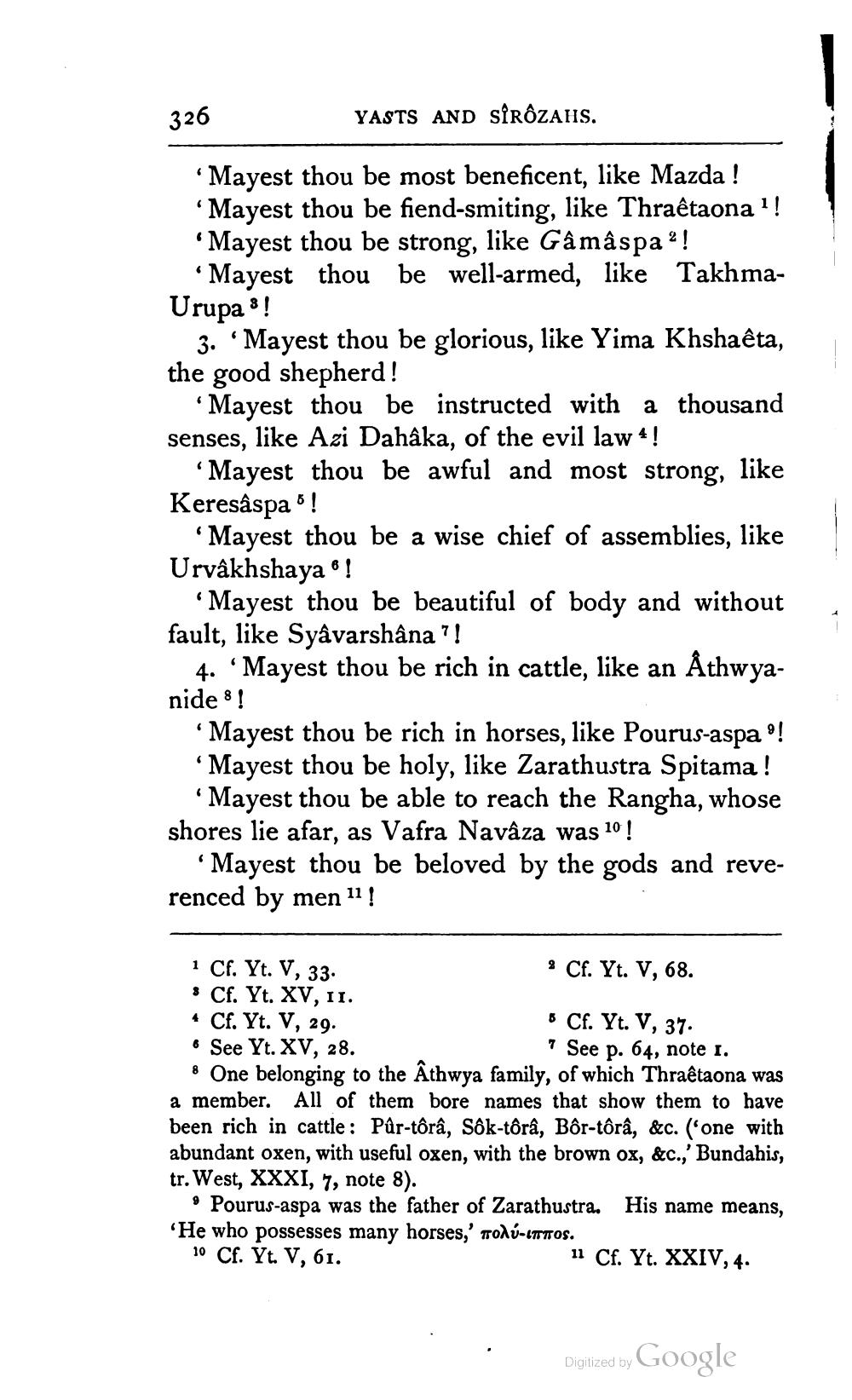________________
326
YASTS AND SÎRÔZAHS.
Mayest thou be most beneficent, like Mazda ! Mayest thou be fiend-smiting, like Thraêtaona !! Mayest thou be strong, like Gâmâspa ?!
Mayest thou be well-armed, like TakhmaUrupa 8!
3. "Mayest thou be glorious, like Yima Khshaêta, the good shepherd!
"Mayest thou be instructed with a thousand senses, like Azi Dahâka, of the evil law + !
Mayest thou be awful and most strong, like Keresâspa !
Mayest thou be a wise chief of assemblies, like Urvâkhshaya !
"Mayest thou be beautiful of body and without fault, like Syâvarshầna?!
4. 'Mayest thou be rich in cattle, like an Åthwyanide 8!
Mayest thou be rich in horses, like Pourus-aspao! Mayest thou be holy, like Zarathustra Spitama!
Mayest thou be able to reach the Rangha, whose shores lie afar, as Vafra Navâza was 10!
Mayest thou be beloved by the gods and reverenced by men 11!
1 Cf. Yt. V, 33
Cf. Yt. V, 68. : Cf. Yt. XV, 11. Cf. Yt. V, 29.
Cf. Yt. V, 37. See Yt. XV, 28.
? See p. 64, note I. 8 One belonging to the Athwya family, of which Thraêtaona was a member. All of them bore names that show them to have been rich in cattle: Pûr-tôrâ, Sôk-tôrâ, Bôr-tôrâ, &c. ('one with abundant oxen, with useful oxen, with the brown ox, &c.,' Bundahis, tr. West, XXXI, 7, note 8).
Pourus-aspa was the father of Zarathustra. His name means, 'He who possesses many horses,' Troló-LTTOS. 10 Cf. Yt. V, 61.
11 Cf. Yt. XXIV, 4.
Digitized by Google




